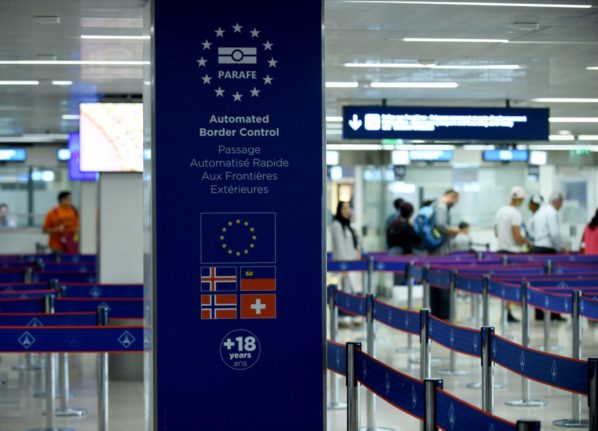EU citizens who do not work, study or have families in Sweden can still stay in the country longer than three months if they can demonstrate that they are self-supporting. This requires them to have a comprehensive health insurance as well as a guaranteed income from overseas or sufficient savings.
Once an EU citizen gets registered, or folkbokförd, and obtains a Swedish personal number, they no longer have to pay health insurance.
But several Britons who have post-Brexit residence on the basis of being “self-supporting”, told The Local that they believed that they had to continue paying health insurance premiums of as much as 50,000 kronor a year if they wanted to fulfil the conditions for living in Sweden legally and so qualify for permanent right of residence (permanent uppehållsrätt), or citizenship.
“As a sixty-one year old person categorised as self-supporting in Sweden, I must pay almost 50,000 kronor per annum for health insurance,” wrote Simon, a Briton living in Värmland. “A yearly increase of 10 percent for the years until I’m eligible for citizenship is unsustainable. If the proposal for an eight-year wait until one can apply for citizenship is implemented, it’s even more so. If Britain remained in the EU such insurance wouldn’t be required.”
When The Local contacted Sweden’s Migration Agency about this, they said that Simon appeared to be misinformed.
“People who are registered as living in Sweden (folkbokförd) are covered by the Swedish social insurance system and so as a result do not need to have their own comprehensive health insurance.”
When Brits categorised as “self-supporting” and living in Sweden with post-Brexit residence status apply for certificates of permanent uppehållsrätt or Swedish citizenship in the coming years, the agency continued, they would not need to have had comprehensive health insurance over this period to qualify.
“The requirement for comprehensive health insurance is fulfilled because the British citizen is registered as living in Sweden,” the agency wrote.
Franceska Leichert, a lawyer specialising in post-Brexit residency at the Migration agency said that the health insurance rules for students were the same as for self-sufficient people.
“They need to have a comprehensive sickness insurance in accordance with Article 7 of the Citizen Rights Directive. The Swedish Migration Agency require comprehensive sickness insurance until their right of residence/residence
status is permanent. Being nationally registered at the Swedish Tax Office (folkbokföringen) and therefore affiliated to the public sickness insurance system, the condition set out in Article 8 in the Citizen Rights Directive about comprehensive sickness insurance is fulfilled.”



 Please whitelist us to continue reading.
Please whitelist us to continue reading.
Member comments